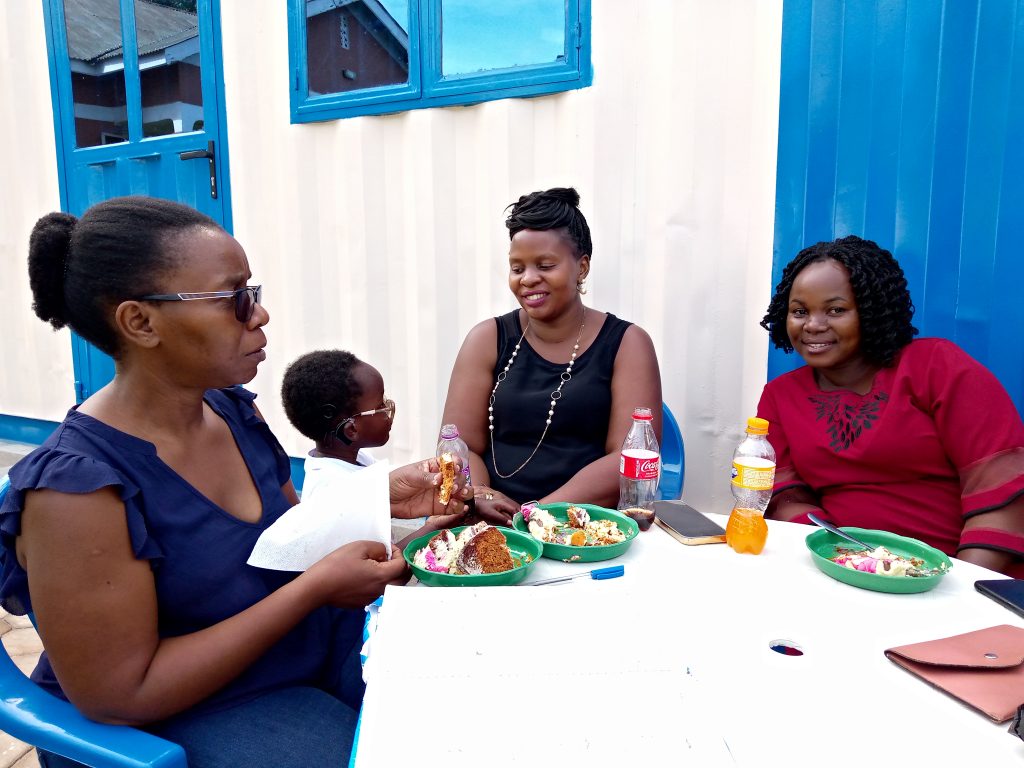Parent Infant Program (PIP)

Parent Infant Program (PIP): Empowering Parents to Embrace and Communicate with Their Deaf Children
Hear His Voice Uganda’s Parent Infant Program (PIP) is a groundbreaking rehabilitation program that seeks to empower parents with the necessary tools and knowledge to effectively communicate and engage with their children aged 0-3 years who are diagnosed with hearing loss. By fostering a supportive and nurturing environment, PIP enables parents to play a pivotal role in their child’s development, facilitating their language acquisition and overall growth.


Understanding the Impact of Hearing Loss on Children
Hearing loss can be a daunting challenge, particularly for infants and toddlers who are in the crucial stages of language development. Without early intervention, hearing-impaired children may experience delays in speech, cognitive skills, and social interactions. This can lead to feelings of isolation and frustration for both the child and the parent.
The Vision of PIP
Hear His Voice Uganda envisioned a program that would address these challenges by focusing on the key relationship between parents and their hearing-impaired infants. PIP aims to equip parents with the knowledge and skills necessary to create a supportive environment where their children can thrive and reach their full potential.
The PIP Approach:
Early Identification and Diagnosis: PIP begins with early identification and diagnosis of hearing loss in infants. As soon as hearing loss is detected, parents are invited to enroll in the program, ensuring that intervention starts as early as possible.
Parent Education: PIP recognizes that parents are the primary caregivers and educators in a child’s life. Through individual and group sessions, parents receive comprehensive training on various aspects of hearing loss, communication strategies, and language development.
Building Communication Skills: The program emphasizes the importance of visual communication techniques, including sign language and facial expressions, to facilitate early language acquisition in hearing-impaired children.
Support Network: PIP fosters a supportive community where parents can connect with others facing similar challenges. This network provides emotional support and a platform for sharing experiences and insights.
Early Intervention Therapy: PIP incorporates early intervention therapy, involving skilled professionals who work directly with the child and parents to develop personalized strategies for stimulating language development and cognitive growth.
Monitoring and Progress: Regular monitoring and assessment of the child’s progress are key components of PIP. This enables adjustments to be made to the intervention plan as the child’s needs evolve.
The Impact of PIP
The Parent Infant Program has transformed the lives of countless families in Uganda, empowering parents to break down communication barriers and forge meaningful connections with their hearing-impaired children. The benefits extend beyond language development, as children enrolled in PIP often experience enhanced emotional well-being and increased self-confidence.
Future Goals of PIP
Hear His Voice Uganda’s PIP is continually evolving to meet the changing needs of families and their hearing-impaired children. Future goals include expanding the program’s reach to remote areas, conducting research to improve the efficacy of early intervention strategies, and advocating for greater awareness of hearing loss in young children.
The Parent Infant Program (PIP) by is a beacon of hope for families with hearing-impaired infants and toddlers. By empowering parents with the knowledge and tools to effectively communicate with their children, PIP lays the foundation for a bright future filled with limitless possibilities. Through this program, Hear His Voice Uganda is fostering a world where all children, regardless of hearing ability, can thrive and reach their full potential.
